Why we do not participate in Black Friday Sales

BLACK WHY DAY?
Why some businesses do, why we do not.
Dear Somastars,
Alistair’s second job out of high school was at a sales company selling credit cards. On his first day, his manager sat him down for a lecture on the theory and philosophy of sales. He put an acrostic on the overhead projector:
Greed
Indifference
Fear of Loss
The Joneses Theory
Sense of Urgency
Indifference
Fear of Loss
The Joneses Theory
Sense of Urgency
Make people greedy, make them curious, make them afraid, make them envious, make them anxious: those were the five ways to sell a credit card.
In the years since, we’ve learned that these are methods to sell people stuff they don’t need. You don’t sell a product: you sell a feeling, which you paint over the product, and try to befuddle people, so they can’t tell which is which.
Coca-Cola don’t sell Coke; they sell a beach and a beautiful lady. Gambling companies don’t sell odds; they sell that thrilling dread you get when everything hangs in the balance, and you don’t know if you’ll be shouting everyone drinks for the night or be eating pasta for a week. The companies with Black Friday Sales aren’t selling clothes or carpets or homewares; they’re selling bargains - the feeling of snooping out a good deal, getting something for less than what it’s worth - the feeling of the hunt, and the win.
Of course you haven’t really won a bargain. You’ve been pulled into a game of tug-of-war with a company that has the margin space to occasionally take their prices bungee jumping. You’ve left the world of supply and demand, and entered a second economics driven by addiction and the manipulation of addictive behaviours.
It’s all well and good, and it can be fun to play the game, but it’s a game that can really only be played between strangers. It’s a game that, ultimately, is a dance with dissatisfaction: making people want things because they think extra things will make their life better. Which, of course, is an illusion.
Alistair bought a pair of barefoot shoes a few months ago, and he’s decided that he wants a second pair in a different colour, to match another palette out outfits. Of course he doesn’t need a second pair of barefoot shoes - most of the world makes do without one - but he wants them. So he has the company’s website open on his phone, which he refreshes every few weeks to check if they’ve put his shoes on sale. So far they haven’t - he thinks his best bet is after Christmas - but he stubbornly refuses to be the fool who buys the shoes at full price. Because that’s what sales often are - selling things at their real price for a week or two, hoping to suck people into buying them at an inflated price for the rest of the year.
At Soma we don’t want to play that game. We want people to buy Soma Cacao, not a bargain on cocoa.
We buy the best cacao in the world, do everything we can to minimise our costs by shipping and processing in bulk, and then calculate a price that is fair for everyone. Our goal for our profit margin is about 5%. (Last year, when the whole world went crazy, we just about broke even). At the moment, all of that 5% goes towards buying bigger shipments of cacao and health foods to keep more and more Somis fully-stocked.
Right now we pay ourselves a weekly wage similar to what we pay our staff. We’re happy with this, because we can fund our lives, and also feel like we’re investing in our business. A time will come, some years from now, when Soma will stop growing, we’ll reduce our advertising, stop growing our order size, and treat Soma like an online corner store, where old friends come and go, buying the world’s best and most exciting cacaos.
At that point, Soma will be profitable. But then we’ll have parents to take care of, children (hopefully) to educate, roofs to repair, cars to service, and so on.
We’d love one day to have enough money to help fund little cacao farms in Australia and abroad (right now we’re looking for a way to help Farmer Josué expand his farm in Mexico, and wish we had more money to lend him). And we hope to live a happy life in which we never want for anything, neither in the sense of lack nor of greed.
People have addictive tendencies with money as much as anything else. We forget too easily that wealth is not just money, but is a flow of giving and receiving of which money is one of many currencies. There seems to be a universal current of abundance, and wealth consists of swimming in that current, which is always fresh, not cordoning off a pool of water which quickly grows stagnant.
But I’m afraid I’m circling around the point! The short answer to the question is: We don’t do Black Friday sales.
The longer answer is: We’ve calculated our price very specifically to be fair to our suppliers, fair to the processors we work with, fair to our customers, and fair to us. It may increase gradually each year with inflation, but we don’t play with our prices from month to month.
We want you to shop at Soma because you love your daily cacao, not because our business is like a giant poker machine that occasionally dispenses cheap chocolate.
We hope you enjoy the Black Friday sales, and get all your Christmas shopping done while stuff is cheap (like Alistair, the stubborn one in our relationship).
Soma will still be here when the hype dies, selling the same amazing cacao at the same great price, next week the same as last week, and the week before, and all the weeks for the rest of the year.
With a dollop of tahini and a scraping of vanilla,
Rose, Alistair, and the team at Soma Cacao
1 comment


















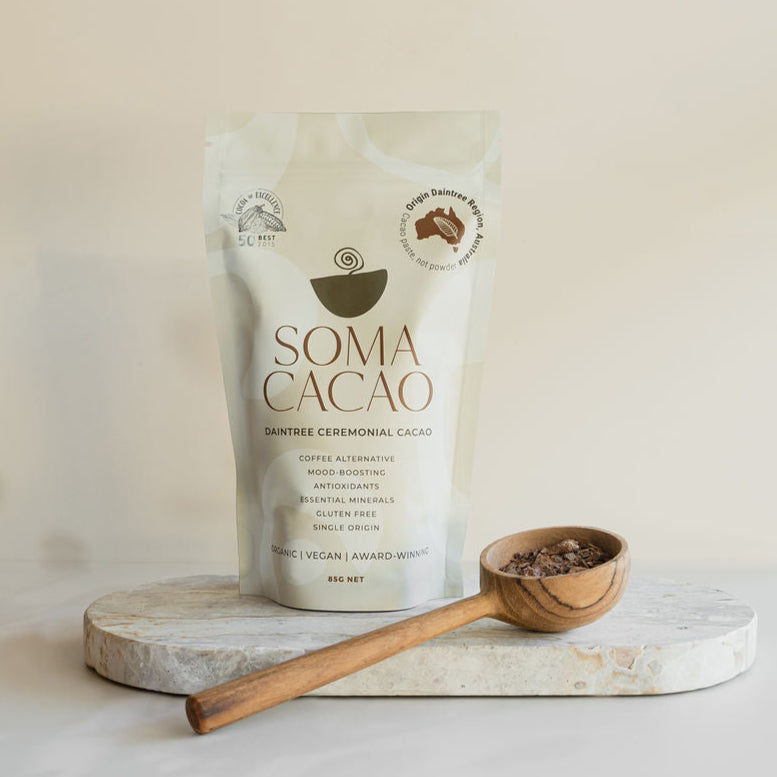

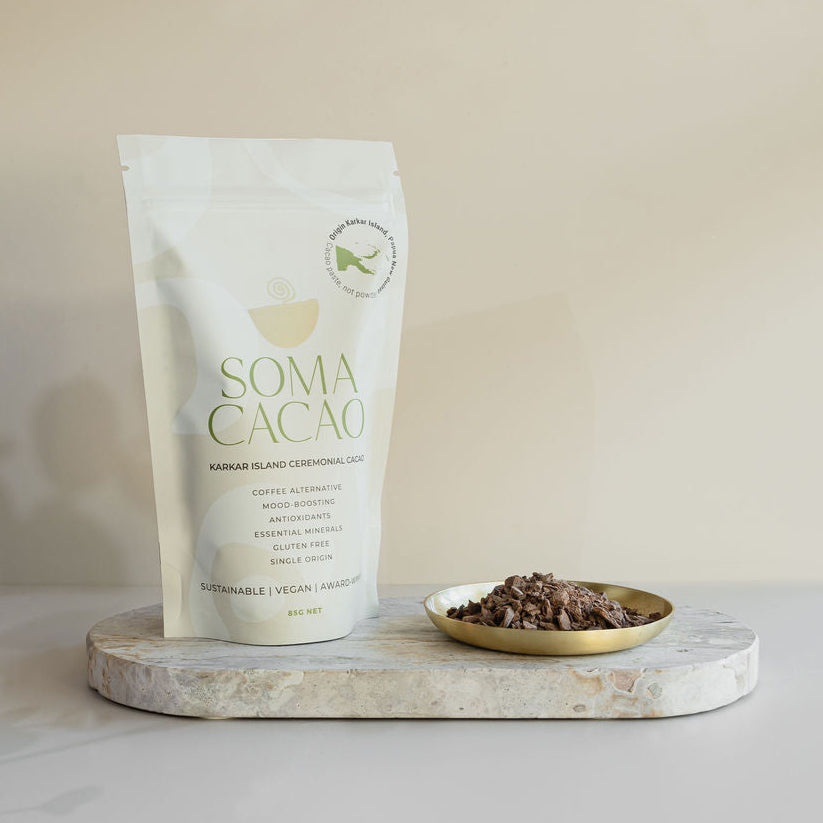
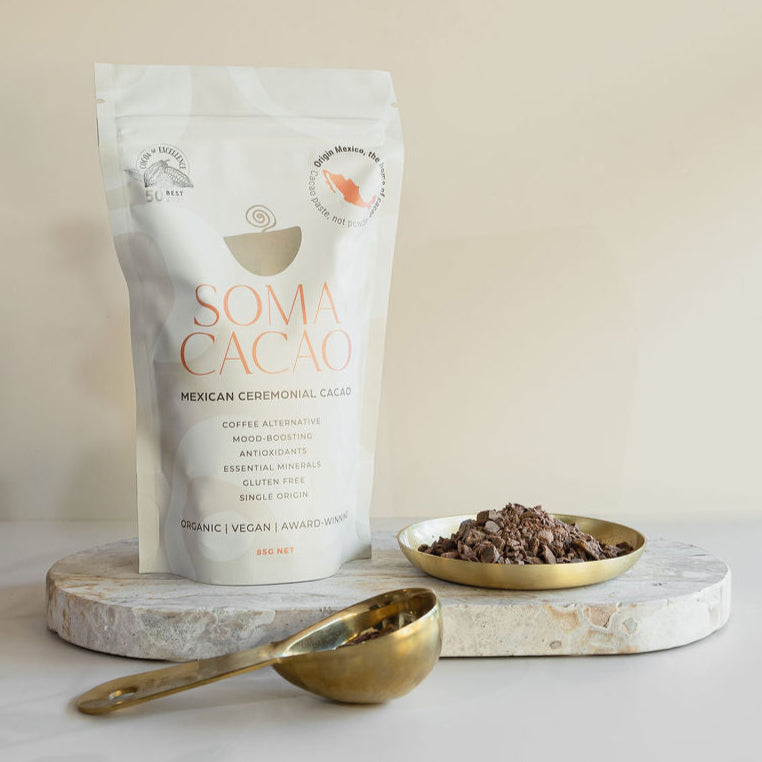
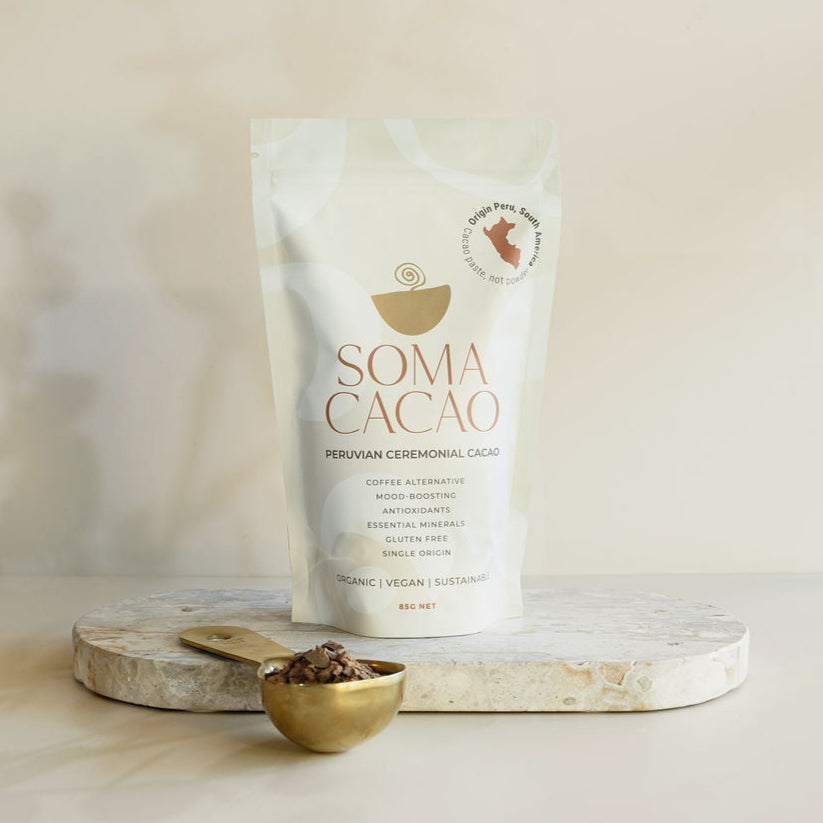
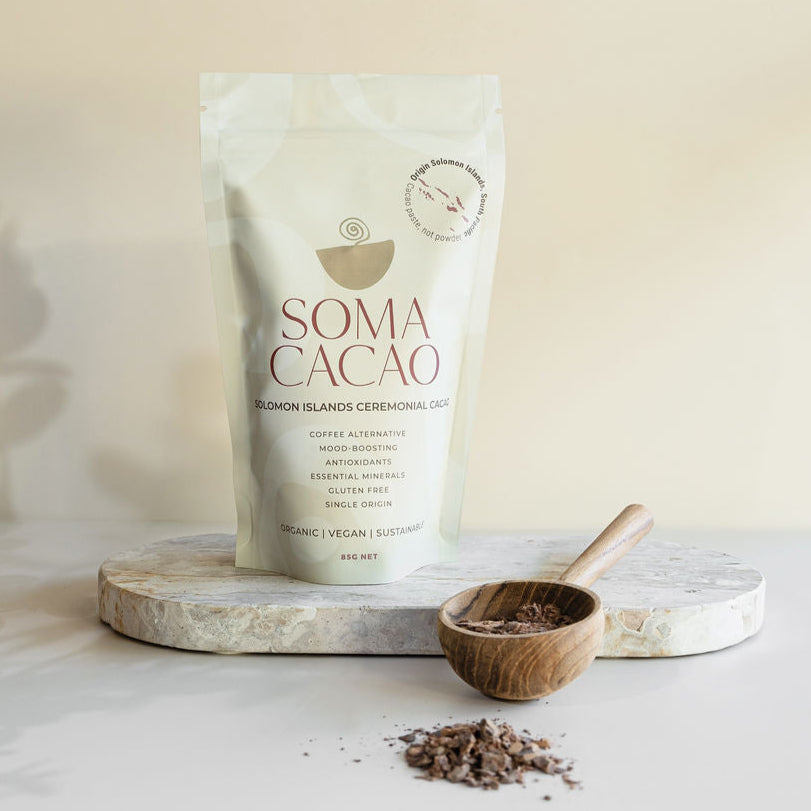
I love your message and the values expressed in this post. I hold similar values which have stood the test of time.